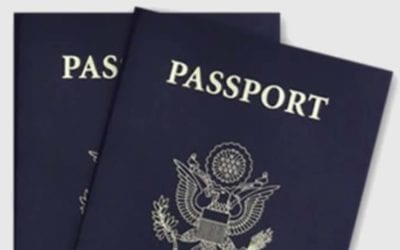The airline industry is doing everything it can to limit competition. It has refused to disclose ancillary fees to travel agents and the public during the act of purchasing a ticket, making comparison shopping impossible. Delta Air Lines is restricting the distribution of its airfares. And, the U.S. airlines are attempting to stop new international competition.
Comparison shopping and the free market need disclosure of complete prices
It would seem silly for an auto dealer to sell only the car chassis and body. Then, if consumers wanted to purchase tires or a steering wheel, they would have to go to the maker’s website and make another purchase, let alone figure out the price for the tires and the steering wheel. Today’s airline industry is similar. Airfares are sold by all travel agents and airfares can be compared easily, but that is not the complete package needed for travel.
Baggage charges that vary from airline to airline, seat reservation fees that vary from airline to airline and other extra fees are not disclosed by the airlines. So for a traveler to be able to compare the full cost of travel across airlines, the traveler would need to go airline to airline and figure out the full cost of flying. After those calculations, then the full cost of flying could be compared.
Making comparison shopping even more difficult, airlines have instituted a slew of exemptions for these extra fees based on the level of frequent flier program participation, the type of credit card carried by the passenger, and the credit card used by the passenger to purchase airfare. Some airlines allow elite frequent fliers and some credit card holders to share their exemptions with other passengers traveling on the same record locator on flights booked at the same time.
It is not easy to effectively compare prices across airlines. Passengers deserve the ability to compare complete prices. This is what makes the free market work and it drives innovation.
Delta Air Lines is limiting distribution of its airfares, making comparison shopping harder
In an anti-competition and anti-consumer move, Delta Air Lines has begun to restrict the distribution of its airfares in addition to refusing to disclose ancillary fees. If the airfares aren’t even present on websites, that makes it impossible to comparison shop. Take a look at websites like Hipmunk.com, TripAdvisor.com, Travelzoo (fly.com), skyscanner.com and some other online travel agents — Delta Air Lines prices are missing. But, these airfares can still be found on the major online travel agents like Expedia, Orbitz and Priceline as well as on metasearch giant, Kayak.com.
Delta is simply making price comparison shopping more difficult by restricting free publication of its prices.
Independent online travel agents like Expedia, Orbitz, Priceline and Kayak are the main websites where airfares can be compared across almost all airlines. With four airlines — American, Delta, Southwest and United — controlling more than 85 percent of the domestic air travel marketplace, the publication of their data becomes even more important for effective comparison shopping.
Southwest has historically not participated in selling through travel agents. (Some traditional travel agents can see the entire fare situation including Southwest airfares and schedules. If your travel agent can do the comparison shopping for you, ask them to do so. Most travel agents, as I understand it, cannot sell Southwest tickets to the average consumer.)
Southwest spends a lot of money telling travelers to go directly to Southwest.com. Now, if Delta Air Lines begins to remove its airfares from the public pricing matrixes, the ability for consumers to easily compare pricing will be curtailed. If another airline such as United decides to restrict its prices, easy airfare comparison will be effectively eliminated.
This is an area where the Department of Transportation (DOT) needs to take immediate action. Airlines can only operate with the influx of many public dollars and they are considered common carriers. Airlines should not have the ability to restrict distribution of their prices (airfares and ancillary fees). This should be public information and its release should be required to access tax-funded aviation infrastructure of an air traffic control system, safety inspectors and airports.
All of the aviation systems function on public money collected from consumers. Airlines hardly pay any taxes, though they moan loudly about said taxes. Consumers pay virtually all of the taxes. Consumers pay the 7.5 percent transportation excise tax. Consumers pay the TSA Security tax. Travelers pay the Passenger Facility Charges. Passengers returning to the USA from international travels pay the agriculture inspection fees and the Customs and Boarder Protection fees.
In the meantime, airlines pay virtually no corporate taxes because of loss-carry-forward rules in spite of record profits. Plus, they were excused from hundreds of millions of security fees in the last budget agreement while consumers saw their security fees more than double in many cases.
International competition will keep international airfares in check
The airline lobbyists have prevailed on DOT to delay issuing permission for Norwegian Air International to fly transatlantic and provide consumers significantly lower international airfares. Contrary to all current aviation treaties, DOT has not permitted this new service to start.
An example of how much consumers would be able to save can be seen on the Norwegian Air Shuttle website. This airline, that has a larger network of European flights than any U.S. airline and that flies more advanced aircraft across the Atlantic than any US airline, offers airfares between U.S. gateways — New York JFK, Fort Lauderdale, Orlando and Los Angeles — and Stockholm, Oslo and Copenhagen, costing less than $400 round trip. The savings are amazing when compared with US carriers.
Preventing this transatlantic competition is costing the American public millions of dollars every day that service is delayed. This airline and airline union lobbying effort is strictly an effort to stop competition and keep prices high when three airline alliances — oneworld, SkyTeam and Star Alliance — are allowed to collude and divide the market.
In addition, the major network carriers are now lobbying the Department of State and DOT to change open skies treaties that have provided expanded international airline service over the past two decades. They are attempting to stop the growth of middle eastern airline routes to the United States. These airlines — Emirates, Etihad and Qatar — provide virtually no competition between Europe and the U.S., but they are positioned because of changing demographics to compete with service between the U.S. and south Asia and south Africa.
Airlines are fighting competition on all of these fronts. Hopefully, 2015 will see free distribution of airfares and ancillary fees to enable comparison shopping and new international competition that will lower prices between the U.S. and many international destinations.

Charlie Leocha is the President of Travelers United. He has been working in Washington, DC, for the past 14 years with Congress, the Department of Transportation, and industry stakeholders on travel issues. He was the first consumer representative to the Advisory Committee for Aviation Consumer Protections appointed by the Secretary of Transportation from 2012 through 2018.


